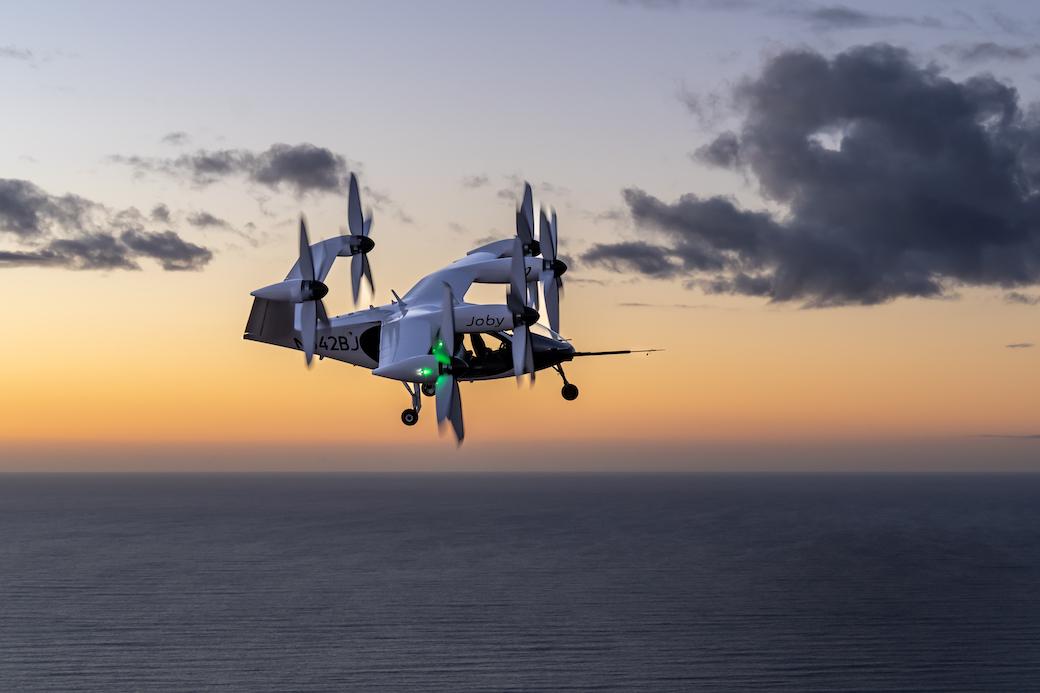
With both securing certification and preparing for operations looming, Joby Aviation has beefed up its board of directors by adding former FAA Administrator Michael Huerta.
Huerta is also a board member at Delta Air Lines, which has invested $60 million in Joby and partnered with the startup to launch commercial air-taxi service in 2025.
Most leaders in the emerging advanced air mobility (AAM) market have hired former FAA officials to help with certification, but Huerta serves the dual role of providing experience as an aviation regulator and tighter integration with a key commercial partner as Joby prepares to launch service.
“There is a clear reason we have done this. This is a pivotal year for the development of air taxis. We are transitioning from research and development to the beginnings of commercialization,” says Paul Sciarra, Joby’s executive chairman.
“We’re making real progress with the FAA: building, testing and documenting. And we’re beginning early production of multiple aircraft that will be increasingly certifiable,” he says. And, with the Defense Department, “we will start to put product into the hands of the customer” in 2023.
Joby is increasingly confident the FAA will have its operating regulations for electric vertical-takeoff-and-landing (eVTOL) aircraft in place by the end of 2024, in time for Joby and Delta to launch commercial city-to-airport service as planned in 2025 in New York and Los Angeles. The FAA’s pivot in May 2022 to certifying eVTOLs as a special class of powered-lift aircraft necessitated a Special Federal Aviation Regulation (SFAR) establishing new operating and pilot licensing rules.
The timing of the SFAR is “looking more and more promising,” says Joby Founder and CEO JoeBen Bevirt. The proposed rule is with the Transportation Department and is expected to be passed up to the White House and the Office of Management and Budget shortly, he says. The notice of proposed rulemaking is anticipated in June. If that timeline holds, Bevirt says, the FAA is expected to release the final SFAR on schedule at the end of 2024.
Sciarra attributes some of the FAA’s rapid progress to support from other branches of government. He cites the Feb. 23 nonpartisan letter from 28 members of the congressional advanced air mobility (AAM) caucus to Transportation Secretary Pete Buttigieg encouraging the integration of AAM into U.S. national airspace.
While the SFAR will clear the way for commercial service, Joby expects to begin flying its S4 tiltprop eVTOL for the Defense Department (DOD) this year under the U.S. Air Force’s Agility Prime program. Details of the service have not been announced, but the contract will put Joby’s military customer “in the driver’s seat” this year. “We have an opportunity through the DOD to do things sooner than some of the other [eVTOL] companies.” Sciarra says.
In addition to changing the startup from a pre-revenue to a revenue company, the DOD contract will present “an opportunity to learn early,” Sciarra says. Joby is already working with the Air Force to develop a training program for the S4 so that military pilots will be able to fly the eVTOL aircraft on military bases, where the company will gain early experience with dispatching and maintaining the aircraft on a small scale.
The DOD contract will involve company-conforming prototypes now being built on Joby’s pilot production line in Marina, California. The company has been flying its engineering prototypes remotely so far, but plans to progress to piloted operations this year, says Sciarra.
The Marina composites and final-assembly plant can build tens of aircraft a year. Joby undergoing site selection for a Phase 1 plant able to build hundreds a year. Joby’s goal is to have its production certification come online at the same time as the S4’s type certificate, Bevirt says, so it can ramp up production. A larger Phase 2 plant, at the same site or a different location, is planned follow as operations scale up.
